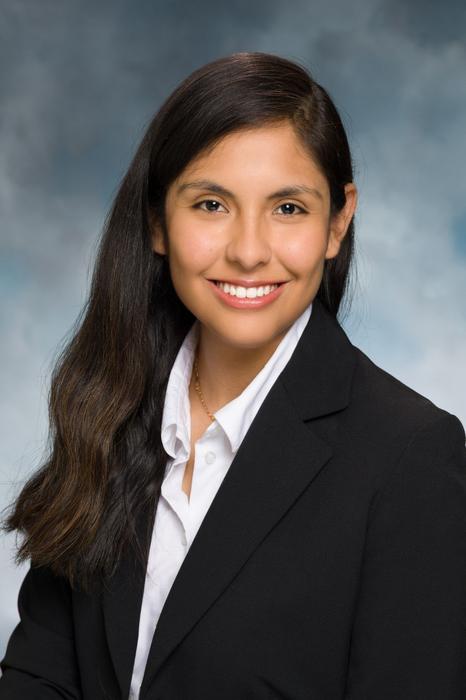Delirium, an acute and often fluctuating disturbance in attention and awareness, is a prevalent and serious condition encountered in intensive care units (ICUs) worldwide. Despite its frequency, the challenge of accurately screening for delirium remains a critical hurdle, particularly among diverse patient populations. At the upcoming ATS 2025 International Conference in San Francisco, groundbreaking research led by Dr. Ana Lucia Fuentes Baldarrago of the University of California, San Diego, will reveal significant disparities in delirium detection among Spanish-speaking Latinx ICU patients. The findings emphasize that conventional screening tools may not only fail these patients but could actively contribute to adverse outcomes, highlighting an urgent call for culturally and linguistically sensitive assessment methods.
Delirium’s ramifications extend beyond momentary confusion—it is associated with prolonged hospital stays, increased healthcare costs, long-term cognitive decline, and higher mortality rates. Standard screening protocols typically involve the Confusion Assessment Method for the ICU (CAM-ICU), a widely used clinician-administered instrument designed to detect delirium efficiently. However, this method assumes a shared language and cultural context between providers and patients, an assumption that does not hold true in multilingual settings. Dr. Fuentes Baldarrago and her research team have critically evaluated the efficacy of CAM-ICU when applied to Spanish-speaking patients without direct linguistic concordance with their healthcare providers, revealing alarming disparities in accuracy and subsequent care.
The research identifies that the standard clinical tools, when administered in English by providers lacking proficiency in Spanish, can lead to two primary misclassifications: false-positive and false-negative delirium diagnoses. False positives may lead clinicians to impose unnecessary physical restraints, a practice known to induce trauma, accelerate cognitive decline, and exacerbate delirium risks. Conversely, false negatives obscure the true presence of delirium, depriving patients of critical interventions such as reduced sedation and delirium-preventative therapies. Both scenarios underline how language discordance can inadvertently compromise patient safety and outcomes.
Seeking an innovative solution, Dr. Fuentes Baldarrago’s team adapted an alternative approach: the Family Confusion Assessment Method (FAM-CAM), which involves trained family caregivers in the screening process. Recognizing the crucial role families play in authentic communication and clinical observation, the researchers developed a culturally tailored Spanish-language version, termed Spanish-FAM. This instrument was subjected to rigorous translation, cultural adaptation, and validation processes, ensuring its relevance and usability in Spanish-speaking populations.
In the methodology, the research juxtaposed delirium assessments obtained through provider-administered CAM-ICU and family-administered Spanish-FAM against a benchmark gold-standard: a trained bilingual research team member’s evaluation using the Spanish-language CAM-ICU. This gold-standard assessment provided an objective measure against which to compare the accuracy of conventional versus family-engaged screening tools. The results were striking; Spanish-FAM demonstrated superior sensitivity and specificity compared to routine CAM-ICU screenings conducted in language-discordant contexts.
Beyond diagnostic accuracy, the study uncovered systemic disparities in care delivery for Spanish-speaking patients. Statistical analyses revealed these patients were disproportionately subjected to physical restraints and deeper sedation levels, both recognized as iatrogenic factors that exacerbate the pathophysiology of ICU delirium. Moreover, they were less likely to receive standard evidence-based delirium prevention interventions including physical and occupational therapy. These disparities underscore the multifactorial impact of language barriers extending from diagnostic challenges to treatment inequities.
The implications of these findings are profound. By illuminating how language discordance undermines the accuracy of delirium detection and contributes to suboptimal clinical management, this study calls into question the reliance on conventional protocols designed for monolingual English-speaking populations. Dr. Fuentes Baldarrago advocates for the integration of validated, culturally sensitive tools such as Spanish-FAM into routine clinical workflows to mitigate diagnostic errors and reduce disparity-driven risks.
Furthermore, the research team acknowledges the logistical challenge of deploying bilingual providers at scale across U.S. ICUs, where Spanish is the second most spoken language. This limitation accentuates the value of family-engaged tools that leverage caregivers as critical communicators without necessitating additional bilingual clinical staff. Such tools could serve as practical, cost-effective supplements or interim measures in linguistically diverse healthcare settings.
Looking forward, Dr. Fuentes Baldarrago envisions research expansions involving objective biological markers of delirium, such as serum biomarkers, to complement behavioral assessments and further enhance detection accuracy. Additionally, larger clinical trials assessing the implementation of Spanish-FAM in varied ICU environments are planned to evaluate its impact on reducing misclassification rates and improving patient-centered outcomes systematically.
This research not only advances the scientific understanding of delirium screening disparities but also resonates with broader efforts to promote health equity in critical care. By tailoring diagnostic protocols to the linguistic and cultural realities of patients, it lays a foundation for reducing systemic biases that compromise care quality. As the medical community increasingly embraces precision medicine, culturally competent tools like Spanish-FAM represent pivotal steps toward equitable critical illness management.
In sum, while the burden of delirium in ICUs has long been recognized, this novel research uncovers how entrenched language barriers can distort diagnostics and patient care, disproportionately affecting vulnerable Spanish-speaking populations. Integrating family-assisted, linguistically adapted screening methods signals a transformative approach with potential for widespread adoption that could alleviate health disparities, optimize ICU delirium outcomes, and ultimately save lives.
Subject of Research: Delirium detection and health equity in Spanish-speaking Latinx ICU patients.
Article Title: Achieving Health Equity in Delirium Detection in Spanish-speaking Latinx ICU Patients.
News Publication Date: Embargoed until 9:15 a.m., Tuesday, May 20, 2025.
Web References: https://www.atsjournals.org/doi/abs/10.1164/ajrccm.2025.211.Abstracts.A5260
Image Credits: Ana Lucia Fuentes Baldarrago, MD.
Keywords: Health equity, Health care delivery, Delirium, ICU, Spanish-speaking patients, Language barriers, Critical illness, Family Confusion Assessment Method, CAM-ICU, Latinx population.




